Mongolia adventure holiday, off the beaten track
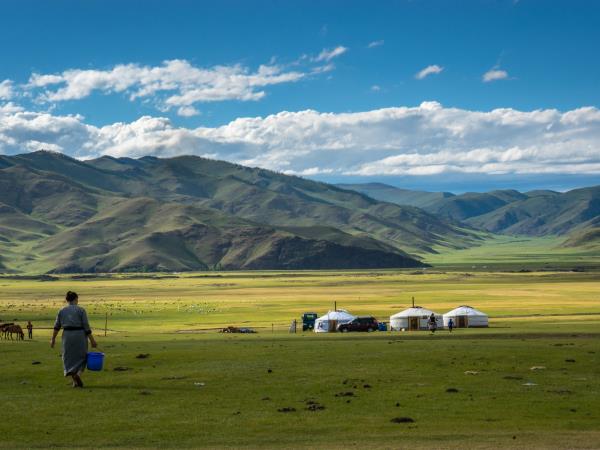
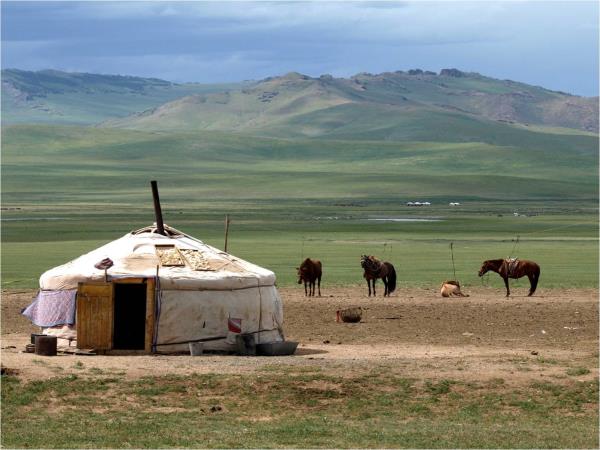
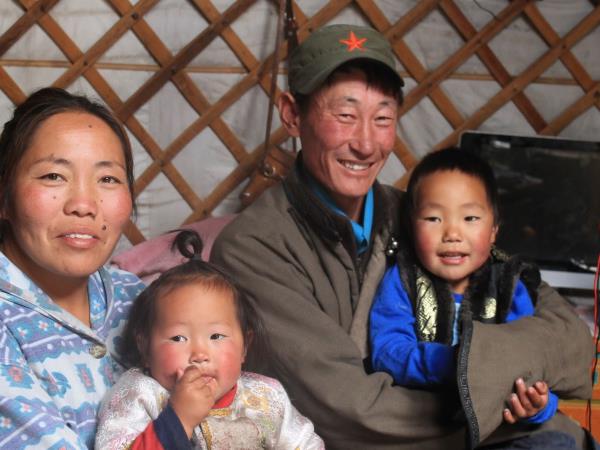
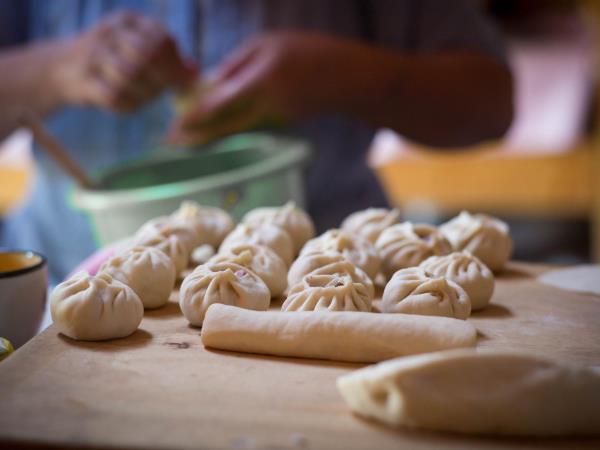
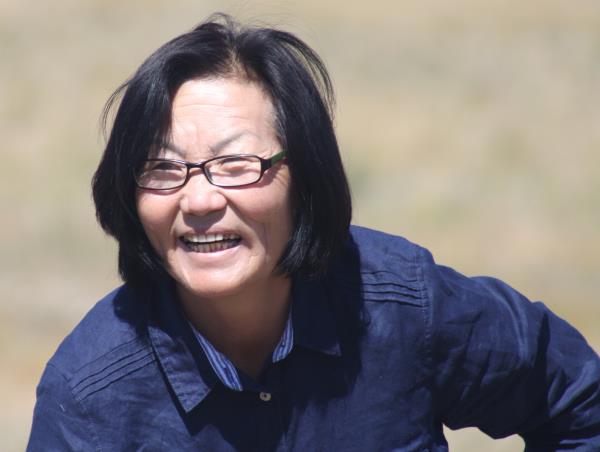
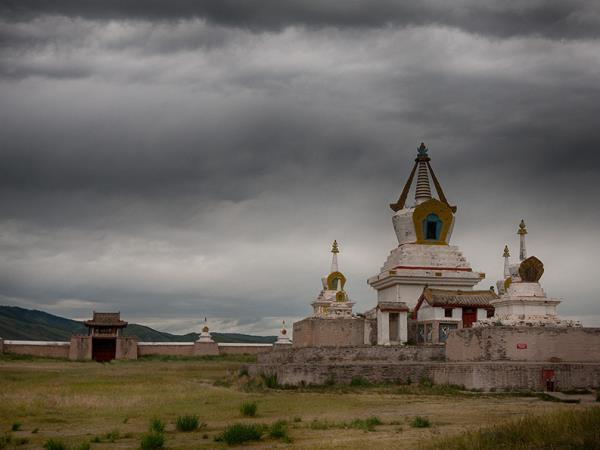
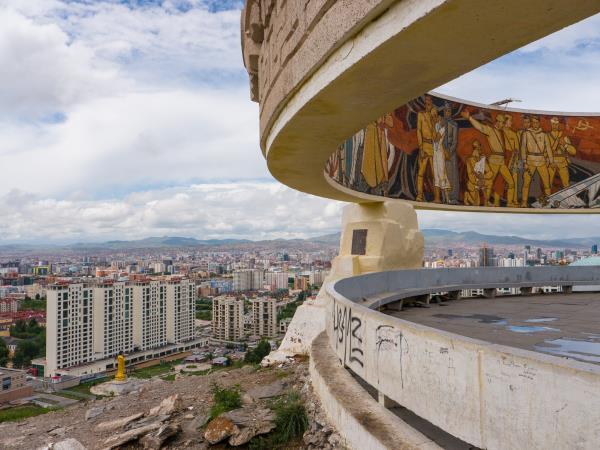
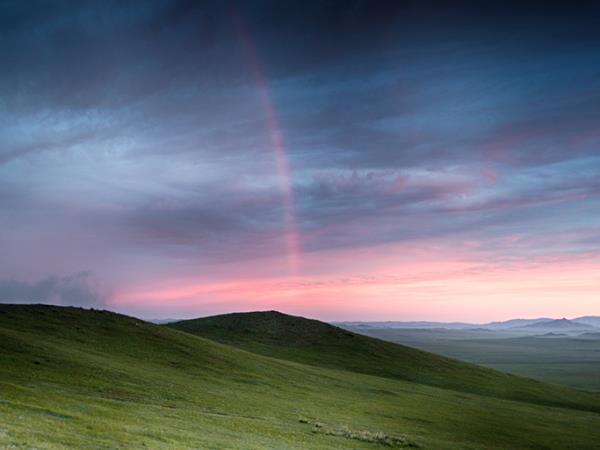
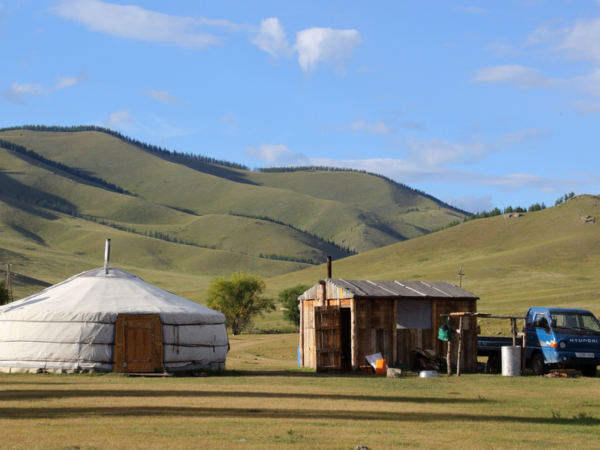
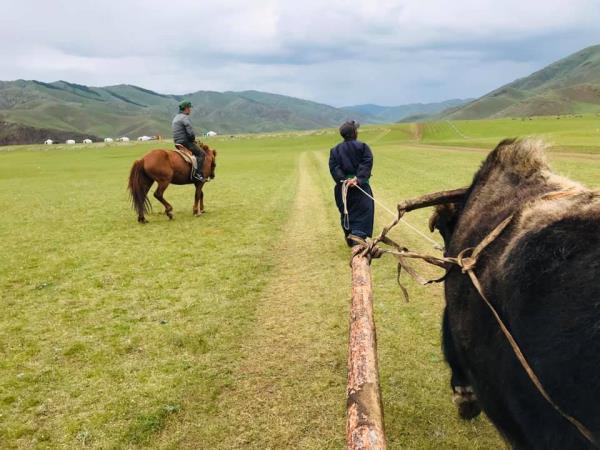
We can also offer this as a tailor made experience adapted to suit you.
Description of Mongolia adventure holiday, off the beaten track
On this Mongolia cultural adventure holiday, off the beaten track, enjoy the chance to live with local Mongolian people and learn about rural life, far from any tourist trail. Forget traditional sightseeing or ticking off highlights and instead enjoy staying in Mongolia’s rural herding communities, observing daily life and living with the local families that we work in long-term local community partnership with.
During the spring, as the snows thaw and the landscape comes back to life, livestock is born and herding communities have lots to do. This 13-day trip, which runs in May, explores rural life at this productive time of year from the perspective of local people, from nomadic families that move several times a year, to retired couples living modestly with just a handful of livestock.
This is a small group trip (but can be run as a private departure), for between two and six people – a number kept deliberately low to ensure a personal experience for travellers and a positive, supportive experience for the local people that will host you and who the tour provider works in long-term partnership with. There is nothing contrived about this holiday. You will be living with real people who are going about their lives. It’s deliberately slow-paced, too, so the families have time to get on with their work as you enjoy soaking up Mongolia’s spring landscapes and learning about rural life at this busy time in the calendar.
This holiday is run by a very small independent business consisting of one westerner and a small Mongolian team. It’s based in Mongolia and was set up nearly two decades ago. Each holiday is designed and run by us and we work closely with local people to create personal, unique experiences. Our itineraries are diverse, flexible and designed to give you an authentic introduction to Mongolia.
Map
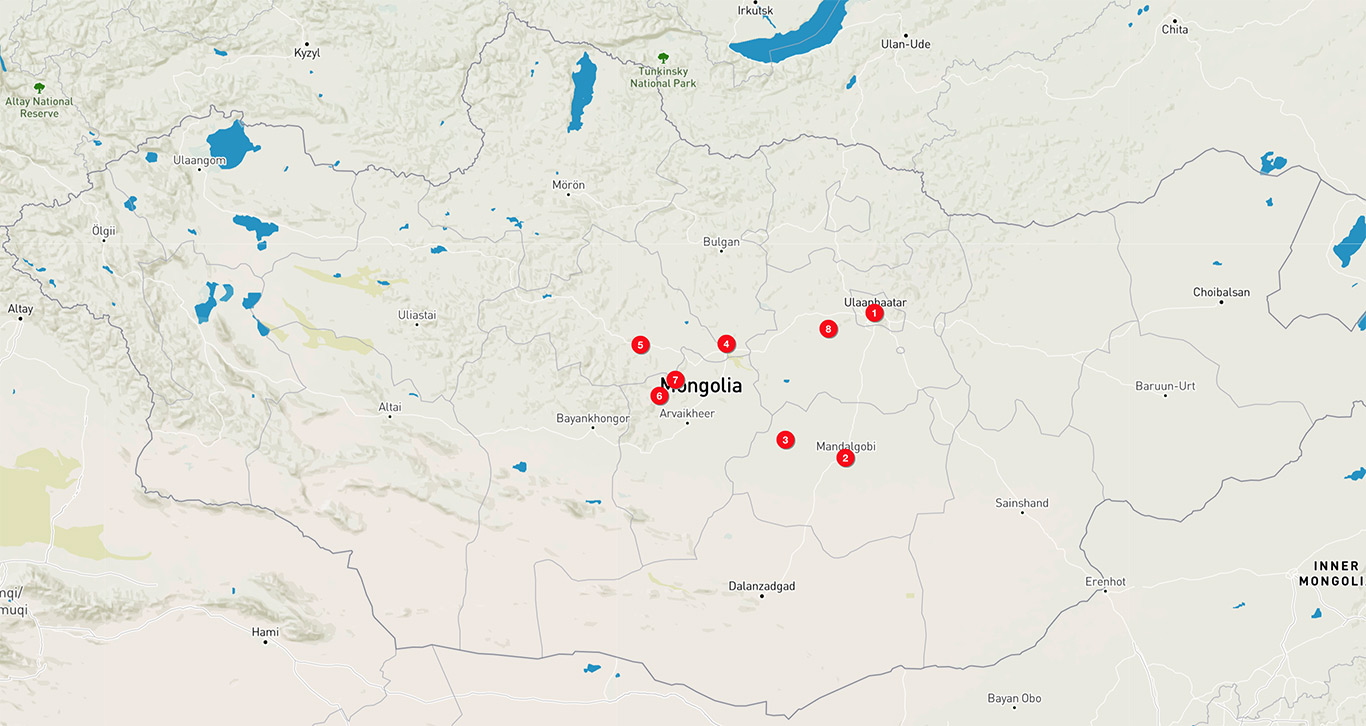
Price information
Check dates
Travel guides
Holiday information
Accessibility
Reviews
4 Reviews of Mongolia adventure holiday, off the beaten track
Reviewed on 14 Jul 2019 by Mark Blackburn
The most memorable and exciting part of the holiday was the immensity of the plains. Redefining the middle of nowhere!! Like being in a Sea of green. Read full reviewReviewed on 25 Jul 2017 by C E Barker
I loved it all I'm glad that I took extra days for the city of Ulaanbaatar. You need to see both sides of the Mongolia. Like in all places of the world life has to move on. Read full reviewReviewed on 14 May 2016 by Judith Petrie
The landscapes of Mongolia and the night sky. Read full reviewReviewed on 22 May 2015 by Theresa Partington
Excellent. Very well organised. Guides knew their stuff and were always helpful and cheerful. It was a tremendous experience and I would love to go again - maybe to a different part of this huge and empty country. Read full reviewResponsible Travel
Planet
Always a tricky one this. We can promise you the world but how do we prove it? Responsible, sustainable or ethical travel - in recent years, it has developed many labels and is now a widely-used selling tool in the tourism industry. But, what does it mean? Although there is no real clear definition, it has to be more than ensuring that we collect all of our rubbish, asking before taking a photograph or being aware of the cultural norms. That’s what we should be automatically doing anyway.Below are some of the elements of our responsible travel philosophy for our Spring Journey experience where we can show real evidence of our practice:
The Glasgow Declaration | Tourism Declares A Climate Emergency
We focus solely on Mongolia and over the previous two decades we have seen the impact of the climate emergency on this vast country. Annual precipitation has decreased (the (previously reliable) seasonal rainfall pattern has become erratic) but localised severe weather events have increased. There’s also an increase in desertification and a loss of biodiversity. This is combined with Mongolia’s annual mean air temperature increasing by 2.24°C from 1940 to 2015 – triple the global average.
We are aware that tourism is part of the problem and as a business working in tourism we feel we have a responsibility to help combat problems including those created by tourism itself. We already work responsibly on a local level – we’re a registered Mongolian company and social travel enterprise, focusing on creating positive social change in Mongolia. We believe that travel can and should be a positive experience for both the visitor and for the destination country itself – its natural environment, people, culture and traditions. We can provide evidence of our work. However …
Although we believe travel has to be beneficial to all concerned we also understand that it is not currently beneficial to our planet. But we can’t solve this alone. The problem surrounding climate change can only be solved by working together. This is not about cancelling international travel but it is about travelling better – travelling in a more conscious way. As an industry, we need to come together and act to make our sector more sustainable.
That's why we are a signatory of the Glasgow Declaration (a commitment to take action to halve tourism’s emissions by 2030 including our own, and to report on progress made each year) as well as a member of Tourism Declares A Climate Emergency – a collective of travel organisations that have declared a climate emergency and are and taking purposeful action to reduce their carbon emissions and coming together to find solutions and to help build a new, regenerative tourism.
Managing Our Carbon Footprint
It is well documented that the tourism industry is a major contributor to global carbon emissions which are a major part of the climate emergency. As a tourism business – especially one working in Mongolia, a country where a majority of our guests have no option but to fly to – we have a moral responsibility to make sure the way we work is as sustainable as possible. It’s a long road with no definitive answers but below are the achievable steps we are taking to reduce our emissions.
1) We’re creating an environmental management plan and climate action plan with the help of postgraduate students on the Responsible Tourism Management Postgraduate Course of Leeds Beckett University in the UK – the only responsible tourism management MSc certified by the UNWTO.
2) We will be working with C-Level to measure our carbon footprint. Carbon offsetting is not the answer to fixing the climate emergency. But, offsetting is part of our wider environmental management and climate action plans and helps us to take responsibility for our current carbon footprint. Using C-Level we will be balancing our CO2 emissions by investing in Plan Vivo Certificates – environmental service certificates, each representing the reduction or avoidance of one metric tonne of carbon dioxide. The Mongolian Nomad Project we invest in through our carbon offsetting is of Plan Vivo Standard – based on ethical principles intended to deliver long-term climate, livelihoods and biodiversity benefits.
3) We’re looking at ways we can incorporate the work of local grassroots projects working on protecting Mongolia’s environment into our experience. One such project is Combatting Cooperative Ar Arvijin Delgerekh. As part of this trip you will stay with rural families who are part of this Cooperative based in the Khangai Mountains. Much of Mongolia’s tourism sector depends in the long term on the preservation of the country’s cultural and physical landscapes. But, by visiting Mongolia, you are making your own impact on the country.
The Cooperative is a local people-led project that is committed to working at a grassroots level towards long term preservation. It focuses on working with herders producing spun yak wool, providing them with an alternative to diversify and increase their income and helping them to protect the land which provides them with their way of life (mainly because they are not so reliant on the money brought in from cashmere combed from their goat herds. Large goat herds can be very destructive on the environment).
4) We plant trees. As part of some of our trips including our Spring Journey we stay with the Radnaarbazar family in Mandalgobi. They are owners of the Gobi Oasis Tree Planting Project. This is a small, family run, non-profit conservation project that has been operating since 1975 in Mandalgobi, Dundgobi Province. Their main conservation work is the planting of seedlings and nurturing them into trees. Part of your tour payment goes as a donation towards the Gobi Oasis project. You will also visit the tree nursery and learn more about their conservation practises. Each group typically plants a tree at the nursery - our team and our guests have now planted over 120 of our own trees which represents around 3% of the total number of trees planted at Gobi Oasis. A single young tree can absorb 26 pounds of CO2 per year so we’re (very) slowly doing out bit towards managing carbon emissions as well as contributing towards the battle with desertification.
Water
Because of Mongolia’s geographical location and climate, it faces a strain on its freshwater supply which the impact of tourism will only exacerbate. We’re creating looking at how we can limit our own impact on Mongolia’s future freshwater shortage which looks at the accommodation we use, the way our team uses water as part of each trip and also how we provide drinking water to our guests. Two examples of this are:
1) We do not provide bottled drinking water as apart from in the capital city, there is just no way to recycle the bottles. Instead, we take fresh drinking water from local water supply points. We provide two 20 litre water containers in each tour vehicle and provide a Lifesaver carbon filter or an Adventurer Steripen in each vehicle. In addition, we have formed a partnership with Water-To-Go. Our travellers are now able to purchase a Water-To-Go reusable filtered water bottle and receive a 15% discount. From each purchase an additional 15% is put towards buying Plan Vivo Foundation carbon certificates which are used to support the Plan Vivo Mongolian Nomad Project - working in partnership with the Mongolian Society of Range Management.
2) Also, for a majority of all of our trips we do not use the typical tourist ger camps that often have very bad eco-credentials. Instead, we use a mix of accommodation and use the locally provided town shower houses. This is where a majority of Mongolia's rural population come to shower including the families that will host you on our Spring Journey experience. The shower houses are small business enterprises operated for the local communities and a great way to support local, meet the locals and do as the locals do themselves. It also helps us to manage our own environmental footprint.
Waste
The disposal of rubbish is a major issue in Mongolia - especially plastic. As part of our Sustainable Tourism Strategy, we are working on limiting our general use of plastic and as part of this, we have created our Mini Plastic Free Mongolia Challenge which we invite our guests to be part of - as well as our team members.
As part of our Responsible Travel ethos, we work with a local Mongolian NGO (Mongolian Quilting Centre) to make fabric tote bags for our guests which we hand out for free as a welcome pack at the start of each trip. This is a souvenir for our guests but it also helps to support the project and helps us to cut down on the waste we produce. As part of your Spring Journey experience, you will also receive such a tote bag.
Also, you can book knowing that we finance our annual community two-day rubbish collection in Terkhiin Tsagaan Nuur National Park in Mongolia. Arranged through the local community and protected area rangers, we have been arranging this since 2014 - even in 2020 despite a lack of income due to the Covid pandemic.
Group Size
Unlike a majority of the larger tour companies, where small group travel can mean being in a group of up to 12-18 people when we say small group travel this is what we mean. Our group size on this trip has been kept small - a maximum of six. This means that the family experiences during the trip become more personal and authentic for you and more respectful towards the local people you will meet and the local families you stay with. We are not an overwhelming presence - on the local communities or the local environment.
Transport
At the moment our vehicles are driver owned as it gives each driver more flexibility in the low season months. We use Russian 4x4 Furgon vans (diesel & petrol) as these are the most suitable vehicles for handling Mongolia’s rugged terrain. However, we are always looking at ways to manage our overall impact including the impact made by our tour vehicles and this includes providing cycling and trekking experiences as well as using the Trans-Mongolian railway for transport throughout the country. We also have a limited number of departures for each of our itineraries. We also do not concentrate specifically on one area. Mongolia is a country of incredibly diverse yet fragile ecosystems. By limiting our presence in certain areas, we help to preserve and protect and help to avoid the area changing environmentally due to repeated and extended exposure to tourism.
City Nomads Folding Bike
Each of the tour vehicles we send out have a city nomads folding bike. We provide this service for free. Why? It allows our guests to explore further into each region but without relying further on the tour vehicle. It also allows for informal interaction between the local community and our guests as we let the locals use the bikes as well.
People
Our company is not a world or a multi-destination specialist. We concentrate on the country we know, live in and love – Mongolia. We research, design and operate each itinerary ourselves and do not source our itineraries from other agents. That means we’re part of the community that we work to support.A Fair Deal
As a registered social travel enterprise, we look to make sure we work responsibly within tourism and to make sure our work benefits local projects, people and communities as much as it benefits our guests and us as a business. We’re a little different in we believe everyone is equal. That means our guests are equal to our team who are equal to the Mongolians we work with on a more general scale. Respect is at the core of what we believe in.
We focus on creating local community partnerships that offer long-term support to local people, families and Mongolian projects – encouraging their own sense of enterprise. We also look at ways we can continue to work with each family even when their personal circumstances change. We want to continue strengthening these partnerships whilst making sure that they have a positive impact. As part of our philosophy, we don’t stop working with families just because their circumstances change … instead, we look at alternative ways in which we can work with them.
All of our team are Mongolian (apart from Jess) but we don’t source the ‘best’ guides that work the tourism circuit and that already have guaranteed work with other companies. Instead, we provide free long-term training, development and employment opportunities to Mongolian women that want the opportunity to work in tourism (whether that be for a professional reason, for development of personal skills or for economic empowerment) but that other companies won't take as they don't fit the stereotype. Our female Mongolian trip assistants are dynamic women who are searching for an opportunity to train and develop and we provide that long-term opportunity.
Volunteering & Charity
The local projects that we actively support are typically grassroots level projects that provide greater opportunities and benefits for local communities within Mongolia. We don’t arrange orphanage or school visits but one example of how we provide long-term support is that as part of our free city walking tour of Ulaanbaatar - Mongolia's capital city - we take our guests to visit a local project called Nogoon Nuur. We make a donation per person we take to the project which is used by the project for maintenance on their community centre. Another example is our work with the Mongolian Quilting Centre which we pay to make fabric tote bags for our guests which we hand out for free as a welcome pack at the start of each trip. This is a souvenir for our guests but it also helps to support the project working with disadvantaged Mongolian women.
Travelling With Respect
Our trips focus on 21st Century Mongolia - yes, you’ll get to experience the traditional way of life but at the same time gain an overview as what it means to be Mongolian in 21st Century Mongolia. The people we work with are ‘real’ people that we form long-term local community partnerships with. They are not tourism professionals. You’ll meet people from Ulaanbaatar, you’ll meet herders, you’ll meet Mongolians that live in the provincial centres as well as the smaller town and rural communities. However, these are real people with real lives to lead and at no point do we ask the families to change their way of life for our/your own benefit or comfort. If they don’t have a shower, neither will you! (Don’t panic! … see Water in the Environment section!) We ask our guests to try and embrace and enjoy any differences that they come across in Mongolia. Experiencing the differences is all part of any trip and makes it a more authentic and positive holiday for you and a more respectful and enjoyable experience for the locals as well.
An example of our philosophy is that for our Spring Journey experience we used accommodation provided by Mongolian families. For this trip, that’s families we work with in the central heartland. Families offer accommodation to help supplement their income. Most are small rural businesses providing extra accommodation. Some accommodation is offered by herders, some are offered by ‘retired’ herders who no longer migrate and some by families that live in small-town communities. By using this form of accommodation it provides you with a more genuine insight into the real way of life in Mongolia and it benefits the local communities through which we are travelling.
In addition, although we sometimes visit areas where tourism has become more concentrated we also offer itineraries that stretch to areas that are not necessarily considered ‘highlights’ by other tour companies or the guidebooks. By not focusing on one area, it also means that we help to support communities that might not otherwise benefit from the tourism industry.
Popular similar holidays
Mongolia cycling holiday
From £5679 - £5849 16 days including UK flights
The mountains & steppes home to Genghis Khan
Western Mongolia tour, the Altai mountains & eagles
From US $2740 11 days excluding flights
Culture and adventure in the landscapes of western Mongolia
Naadam Festival holiday in Mongolia
From £5849 - £6649 16 days including UK flights
Mongolia tour with Nadaam Festival departures


















